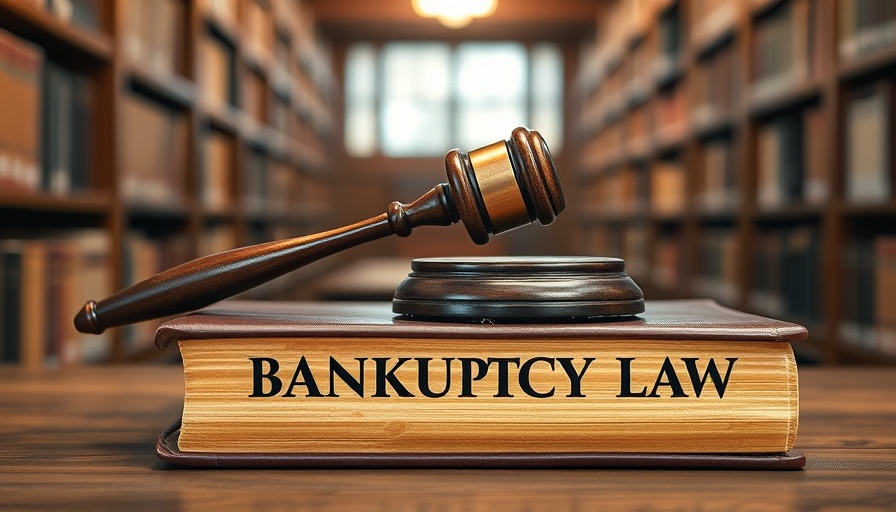
Understanding the Rising Trend of Bankruptcy Filings
April 2024 marks a disconcerting period in personal finance and corporate stability, as new data reveals a significant uptick in bankruptcy filings across the United States. With individual filings increasing by 13% year-over-year, reaching a total of 50,189, this trend signals widespread financial distress. In detail, individual bankruptcy cases saw a jump from 41,994 to 47,462 in March alone. The increase in Chapter 7 bankruptcy filings was particularly notable, surging by 18% to 30,671, while Chapter 13 filings rose 6% to 16,713.
Consumer Confidence at an All-Time Low
The rising bankruptcy numbers are backed by findings from Prosper Marketplace's recent Economic Perceptions & Personal Finance study. The survey highlights that 46% of consumers feel that their income is not keeping pace with inflation, creating significant dissatisfaction with their financial situations. Alarmingly, only 31% of respondents believe their finances are better than prior to the COVID-19 pandemic. As noted by Prosper's CEO, David Kimball, these sentiments echo a growing concern among consumers about their economic futures, with less than half optimistic about improvement within the next five years.
Investment Gaps and Debt Challenges
Another disheartening insight from this analysis is the increasing gap in investment participation. An overwhelming 68% of Americans report having no investments, with women disproportionately affected—nearly 80% of female respondents indicated they do not invest. This stagnation confirms the wider patterns of economic hardship, as a majority are now living paycheck to paycheck, up to 57% from 48% in 2016. Additionally, in 2024, 63% of credit card users admitted they cannot pay off their month-end balances, a worrying increase from 45% in 2016.
Impact on Businesses: Rising Commercial Bankruptcy Filings
The ramifications of these financial struggles are not confined to individual consumers. Businesses are also feeling the strain, with commercial Chapter 11 bankruptcy filings soaring 20% in March, up from 611 last year to 733. Overall commercial filings have risen by 10%, indicating a tough economic climate. Epiq AACER vice president Michael Hunter noted the distress that rising delinquencies, particularly in credit cards and FHA mortgage portfolios, are inflicting on both consumers and businesses alike.
Broader Implications of Economic Distress
As consumers become increasingly financially vulnerable, experts warn that a series of systemic issues could lead to a prolonged economic slump. The connection between individual financial trouble and broader commercial stability cannot be overstated. Rising unemployment and increasing interest rates threaten to push more individuals and businesses into financial hardship. The sentiment is that without immediate and effective interventions, both personal and corporate financial distress will continue to rise.
Actionable Insights for Dealerships and Business Owners
For auto dealers and business owners, the immediate concern must be on how these consumer trends impact sales and financing. It’s crucial to reassess financing options provided to consumers and introduce flexible payment systems to support potential buyers hesitant to commit due to financial insecurity. Furthermore, increased focus on providing clear, transparent financial advice can empower consumers to better navigate these challenging times.
Understanding and reacting to these evolving financial landscapes is not only necessary for the well-being of consumers but also a vital component of maintaining business health. As we move further into 2024, the emphasis on financial literacy and consumer confidence will be key factors driving business success.
 Add Row
Add Row  Add
Add 

 Add Row
Add Row  Add Element
Add Element 




Write A Comment